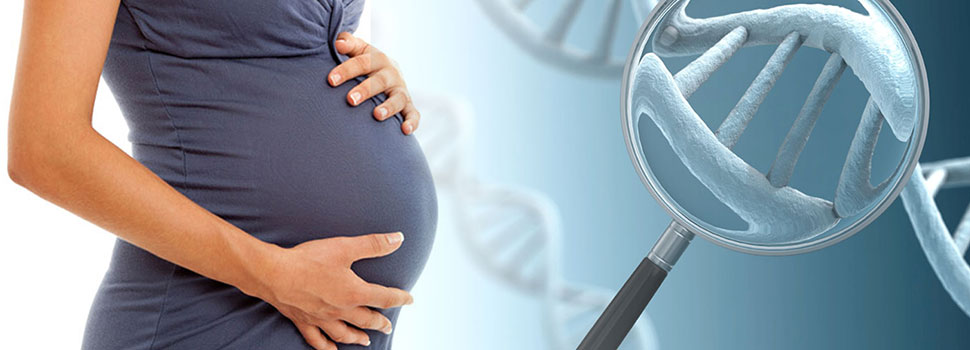NACE
NON-INVASIVE PRENATAL TEST
 Nace is a noninvasive pre-natal screening test used to analyze the DNA of a forming baby, it checks for numerical as well as structural chromosomal abnormalities.
Presence of an extra chromosome (trisomy) or missing a chromosome (monotony) leads to aneuploidies.
Nace is a noninvasive pre-natal screening test used to analyze the DNA of a forming baby, it checks for numerical as well as structural chromosomal abnormalities.
Presence of an extra chromosome (trisomy) or missing a chromosome (monotony) leads to aneuploidies.It detects the following abnormalities:
- Down syndrome- Trisomy 21
- Edward syndrome- Trisomy 18
- Patau syndrome- Trisomy 13
Aneuploidies of sex chromosomes:
X and Y chromosomes determine the sex of the baby, common anomalies include; XXX, XXY (Klinefelter syndrome), monosomy X (Turner syndrome).

More Info:
During pregnancy, the DNA of the baby, growing in the mother’s womb is found in maternal plasma. A maternal blood sample drawn after 10 weeks of pregnancy has sufficient amount of fetal DNA circulating in it, to be tested and to give accurate results.
Benefits
-More accurate than the combined First Trimester screening tests.
-Enables us to test twin pregnancies.
-It benefits women of all ages, ethnicities and BMI (Body Mass Index)
-Reduces the need for amniocentesis, requires a standard maternal blood test.
-The rate of information obtained is 99.9% of the sample analyzed.
-Involves the detection of all 24 chromosomes as well as of 5 micro deletions, which are found in major genetic abnormalities.
-Early detection; from the 10th week of gestation.
-Along with detecting the aneuploidies, NACE can also be used to detect the gender of the future baby as early as the 10th week of pregnancy.

Indications
Doctors recommend NIPT for all pregnant women, but target the following women more;
-Those who had an abnormal first trimester screen result.-History of a previous Down syndrome pregnancy.
-An ultrasound finding that looks suspicious.
More Info
It is a highly sensitive and specific test that can be performed on both single and twin pregnancies.
It can also be performed on In Vitro Fertilization (IVF) cases and in cases where gestation takes place through oocyte donations.Why should one opt for non-invasive prenatal tests?
-The probability of getting a false negative or a false positive result is low.
-Prevents the mother to undergo unnecessary amniocentesis, a test that carries the risk of miscarriage.
-Out of every twenty females tested, only one will be tested positive for carrying a baby with Down syndrome.
Procedure

In the case of a positive result, what’s next?
-Post test genetic counseling.-Extensive and complete ultrasound examination.
-For prenatal diagnosis it should be chromosomal microarrays.
-Confirmation of the positive result by genetic diagnostic testing; amniocentesis and/or chorionic villus sampling.
-Diagnostic testing approach should be karyotype and rapid prenatal testing should be by FISH or QFPCR.
FAQ's
What is NACE and how does it work?
What are the benefits of NACE testing compared to traditional prenatal screening methods?
Non-invasive : No needles or procedures are involved, ensuring a safe and comfortable experience for the mother and baby.
Early detection: NACE can be performed as early as the 10th week of pregnancy, allowing for earlier decision-making.
High accuracy: NACE provides highly accurate results for detecting common chromosomal abnormalities.
Who is a good candidate for NACE testing?
A family history of chromosomal abnormalities.
Advanced maternal age (over 35).
Previous pregnancies with chromosomal abnormalities.
Concerns about their baby's health.
